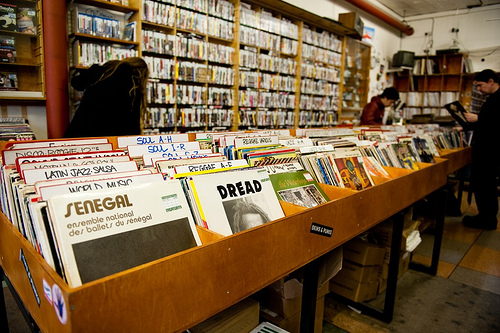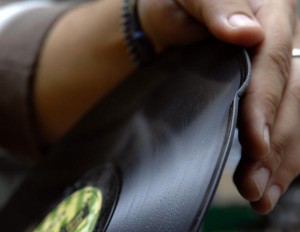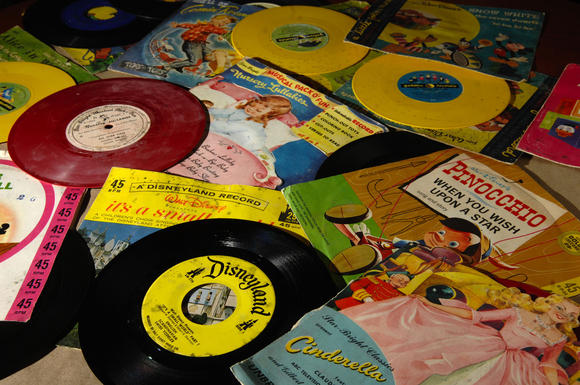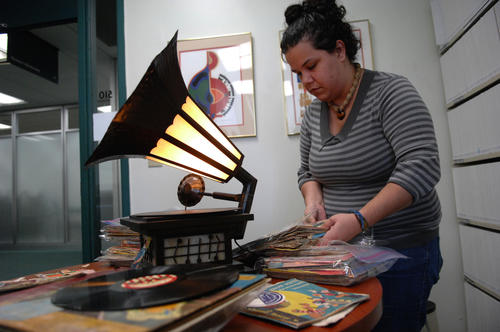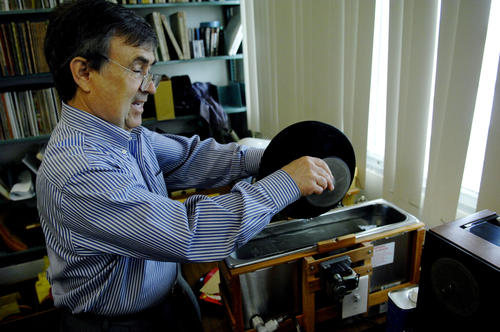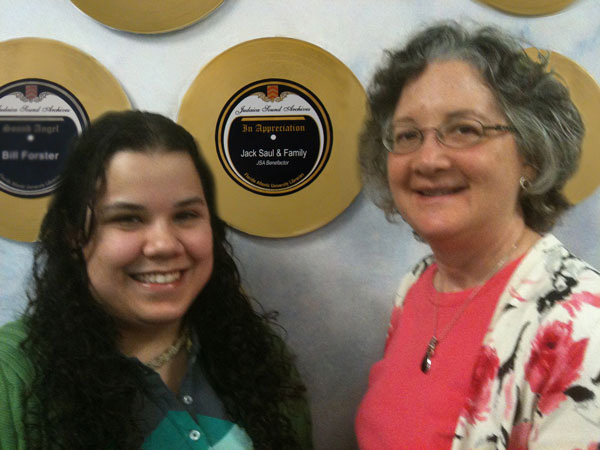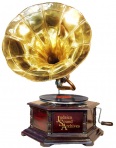FAU Sound Archives Rescues Vintage Kiddie Records Damaged by Hurricane Sandy
By Fire Ant, New Times Palm Beach
 The entrance to the Recorded Sound Archives at FAU is guarded by the remnants of hi-fi history. Walnut-paneled gramophones from the Gilded Age and the Roaring Twenties line one wall. On shelves across the way, postwar portable sound systems and reel-to-reel tape decks compete for shelf space with 78 rpm and 45 rpm records from historic labels long gone – Decca (now owned by Vivendi), RCA Victor and Okeh (now owned by Sony).
The entrance to the Recorded Sound Archives at FAU is guarded by the remnants of hi-fi history. Walnut-paneled gramophones from the Gilded Age and the Roaring Twenties line one wall. On shelves across the way, postwar portable sound systems and reel-to-reel tape decks compete for shelf space with 78 rpm and 45 rpm records from historic labels long gone – Decca (now owned by Vivendi), RCA Victor and Okeh (now owned by Sony).
Now in its third year, the archive is dedicated to the preservation and digitization of vintage audio — music as recorded on vinyl and, before that, shellac discs, which degrade over time as needles bounce through grooves. One of the few institutions of its kind — with more than 100,000 items in its collections of jazz, Judaica and the 78 rpm records that predated the long-playing album — the archive has become an invaluable resource for musicologists and historians from around the world.
The archive’s latest addition is a trove of 786 vintage kiddie records from the collection of “Kiddie Rekord King” Peter Muldavin, perhaps the world’s leading expert on early children’s recordings. A Manhattan resident, Muldavin had the records stored in his mother-in-law’s Long Island garage when Hurricane Sandy struck two years ago. The storm surge left many of the discs mud-stained and warped, while the waterlogged record sleeves and artwork became mildewed and moldy.
With very little commercial value left for Muldavin, he reached out to the RSA. “To collectors the quality of everything counts — the packaging, the labels,” RSA director Dr. Maxine Schackman told us. “We welcomed his donation with open arms. For us, the cultural value was still there.”
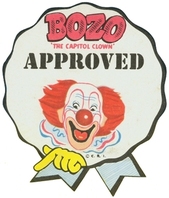 Still, in addition to audio digitization, the colorful packaging that was so much a part of the kiddie records’ appeal is also being repaired and restored (to the extent possible), then digitally scanned. About one-third of the Muldavin donation has been digitized so far, the sound cleaned of crackles and hisses in the process, distilled to the nostalgic essence of what seems (and sounds) like a more innocent time.
Still, in addition to audio digitization, the colorful packaging that was so much a part of the kiddie records’ appeal is also being repaired and restored (to the extent possible), then digitally scanned. About one-third of the Muldavin donation has been digitized so far, the sound cleaned of crackles and hisses in the process, distilled to the nostalgic essence of what seems (and sounds) like a more innocent time.
The kiddie records database should be complete early this year. Because of copyright issues, though, access to the sound files will be restricted. Academics and other researchers will be able to listen over the Internet through a password-protected website or, by appointment, at one of the archive’s listening stations.
Dr. Schackman hopes to make song samples from the kiddie records available to the general public, as has been done with earlier RSA donations. The idea, she says, is “to make the forgetten music unforgettable.”
By Fire Ant — an invasive species, tinged bright red, with an annoying, sometimes-fatal sting — covers Palm Beach County. Got feedback or a tip? Contact Fire.Ant@BrowardPalmBeach.com.
Original Source: http://blogs.browardpalmbeach.com/countygrind/2014/01/fau_sound_archives_rescues_vin.php
